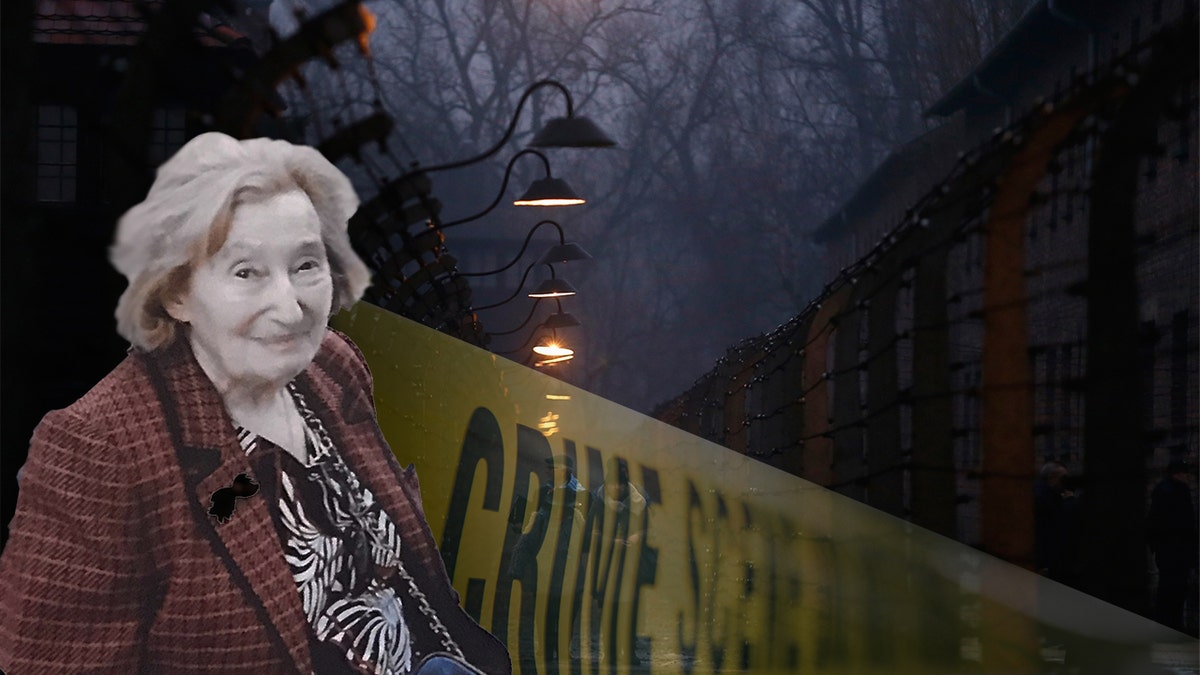
Mireille Knoll in Paris. The 85-year-old was found dead this month at her apartment. She had been stabbed multiple times and her home set ablaze. (REUTERS/Clotaire Achi)
Jews all over the world will sit down for Passover Seders this weekend to celebrate the emergence of our people from bondage to freedom in ancient Egypt. But for many, Mireille Knoll – who escaped the Nazis but fell victim to an anti-Semitic murder in Paris just days ago – will be in our thoughts as well.
Much of our conversations during Passover should be focused on Israel’s upcoming 70th birthday – a remarkable (some say miraculous) milestone for the age-old “startup nation.” But we should not forget Mireille Knoll.
In 1942, just six years before Israel gained its independence, Knoll miraculously escaped the roundup and deportation of 13,000 French Jews – among them 4,000 other Jewish children from Vichy France – to the Auschwitz concentration camp in what is now Poland. Only 100 of those children survived.
After WWII, Knoll resumed her life in France and became a wife, mother and grandmother. But just last week, the 85-year-old widow was brutally stabbed 11 times and her body burned in her modest Paris apartment.
The failure of France to deal forthrightly, quickly and justly against anti-Semitic hate has enraged and scared French Jews as much as these unspeakable crimes have. It also explains why thousands see no future in their native land and have left for Israel and beyond.
Police are investigating two men in their 20s on formal charges of murder with an anti-Semitic motive. One of them was a neighbor who had known Knoll since he was a child.
The New York Times reported: “An official close to the investigation, who was not authorized to speak publicly about the case, said that the friend had told investigators that he had heard Ms. Knoll’s neighbor say ‘God is great’ in Arabic during the killing.”
French authorities were quick to admit that religious-fueled (read Islamist) hatred of Jews was the likely motivation behind Knoll’s murder.
French President Emmanuel Macron, who attended Knoll’s funeral Wednesday, said her killer “assassinated an innocent and vulnerable woman because she was Jewish.”
This terrible anti-Semitic murder caps off a horrific 12-year cycle of shame in the City of Lights. It started in January 2006 when Ilan Halimi, a 23-year-old telephone salesman – French-born of Moroccan-Jewish ancestry – was found naked, tortured and burned south of Paris after being kidnapped and held for three weeks.
Halimi died of his injuries shortly afterwards. French police arrested a dozen members of the self-proclaimed “Gang of Barbarians” Believing that all Jews were rich, the gang made repeated extortion attempts aimed at Halimi’s modest family.
In 2014, a young couple in suburban Paris – targeted because they were Jews – were assaulted, beaten and robbed in their apartment. The 19-year-old Jewish woman was gang raped. At the 2017 trial however, the judge refused to treat the crime as anti-Semitic.
And amidst the attack on a kosher supermarket in Paris in 2015, along with threats against synagogues and seemingly unending hate crimes against individual Jews, came the August 2017 brutal murder in Paris of a 66-year-old retired doctor and Orthodox Jew. She was beaten to death and thrown out the window by a Muslim neighbor who was screaming “Allahu Akbar” (God is great) in Arabic.
Despite witnesses’ testimonies and the protests of French Jewish leaders, authorities dismissed the murder as a mere “isolated incident” and wouldn’t acknowledge the anti-Semitic nature of the crime until President Macron recently promised to establish “clarity on the death” of another Jewish victim.
The failure of France to deal forthrightly, quickly and justly against anti-Semitic hate has enraged and scared French Jews as much as these unspeakable crimes have. It also explains why thousands see no future in their native land and have left for Israel and beyond.
A few weeks ago, along with my Simon Wiesenthal Center Paris-based colleague Dr. Shimon Samuels, I spent two fruitless days of meetings at both the French Justice Ministry and Ministry of Interior, trying to learn who ordered the sudden release of an accused terrorist implicated in the deadly bombing of Paris’ Rue Copernic Synagogue and allowed him to fly to Canada.
Officials were polite enough, but clearly uncomfortable with the issue at hand. They had no answers as to failure of police and intelligence agencies to take more aggressive measures against extremist imams inciting violent anti-Semitic acts, nor could they explain why French judges basically refuse to throw the book at anti-Semitic thugs when arrests are made.
At Mireille Knoll’s funeral, President Macron was joined by thousands of people – including many interfaith leaders, and even far-right and far-left figures – who marched silently against anti-Semitism.
But silence won’t stop anti-Semitism in France. Only action and accountability will. Unless and until French Jews have equal protection under the law from the police, politicians and judges in the country once known as the cradle of democracy, 21st century anti-Semites could ultimately succeed where Hitler failed and eventually make France “Jew-free.”
During the Passover Seder, as we recite the story of how the Jewish people were freed from persecution and bondage in ancient times, it’s important to remember that anti-Semitism and other equally poisonous forms of religious hatred and prejudice live on in our own time. We must all dedicate ourselves to eliminating such hatred.
